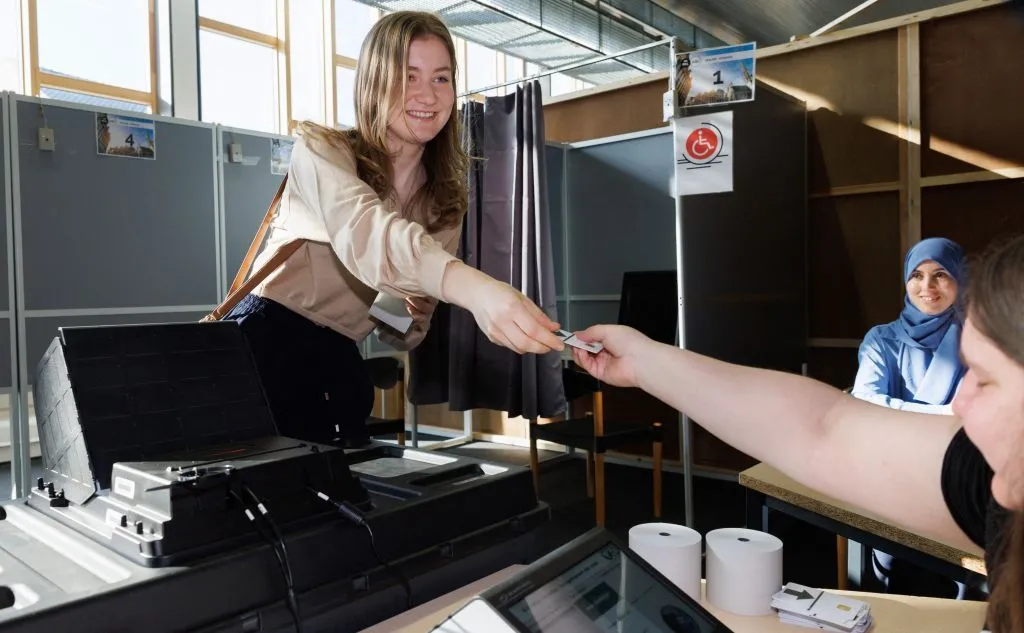- by Admin
- July 2, 2024
Click the link below to join Our WhatsApp group for daily brief on current trends in the country.
Join Here!
Loading

Europeans in 20 countries are going to the polls on the biggest and final day of voting for the European Parliament. In a year of pivotal elections, the EU vote is especially significant, on a continent witnessing polarised politics and increased nationalism. The run-up to the vote has been marked by violent incidents – although an attack that left Danish Prime Minister Mette Frederiksen with minor whiplash and forced her to halt campaigning is not being seen as politically motivated.
Europe’s main centre-right grouping is expected to come top across the EU when first projections emerge later on Sunday, however three parties on the far right all have their eye on winning the most seats nationally. France’s National Rally, Italy’s Brothers of Italy and Austria’s Freedom Party are leading in the polls, as is Belgium’s separatist and anti-immigration party, Vlaams Belang.
Voting already began on Thursday, Friday and Saturday for some EU countries – but the majority of EU member states are voting on Sunday. The European Parliament is the direct link between Europeans and the EU’s institutions.
Sixteen- and seventeen-year-olds will be able to vote for the first time in Germany and Belgium, increasing the size of Europe’s youth vote. Young Austrians and Maltese have been able to vote from 16 for some time, and Greeks can vote from 17.
 In Germany alone there are an estimated 1.4 million eligible 16 and 17-year-olds among about five million first-time voters, so they could make a difference to the outcome. The far-right Alternative For Germany (AfD) has claimed success in attracting young men especially, through campaigns on social media platforms such as TikTok.
In Germany alone there are an estimated 1.4 million eligible 16 and 17-year-olds among about five million first-time voters, so they could make a difference to the outcome. The far-right Alternative For Germany (AfD) has claimed success in attracting young men especially, through campaigns on social media platforms such as TikTok.
In France, Marine Le Pen’s National Rally is hoping to increase its share of the country’s 81 seats, with polls suggesting a big lead over President Emmanuel Macron’s Renew party and the resurgent Socialists under Raphaël Glucksmann.
The big draw for National Rally has been its 28-year-old leader, Jordan Bardella, who has led the European campaign. So seriously has the government taken Mr Bardella that Prime Minister Gabriel Attal joined him in a one-on-one debate, attacking his party’s close relationship with the Kremlin. Mr Macron’s party list for this election is led by Valérie Hayer, a little-known politician in comparison with Jordan Bardella.
Meanwhile, in Hungary, Viktor Orban’s Fidesz party is facing one of the biggest challenges to his rule so far from Peter Magyar and his new centre-right Tisza party.
For all the big national races, the real power in the European Parliament is wielded by political groupings from different member states, and it is the centre-right European People’s Party made up of conservative parties across the EU that is widely tipped to remain the biggest political force in the 720-seat chamber. The centre left has few parties in power in Europe, but is still expected to come second.
Source BBC


Click the link below to join Our WhatsApp group for daily brief on current trends in the country.
Join Here!
0 Comments: